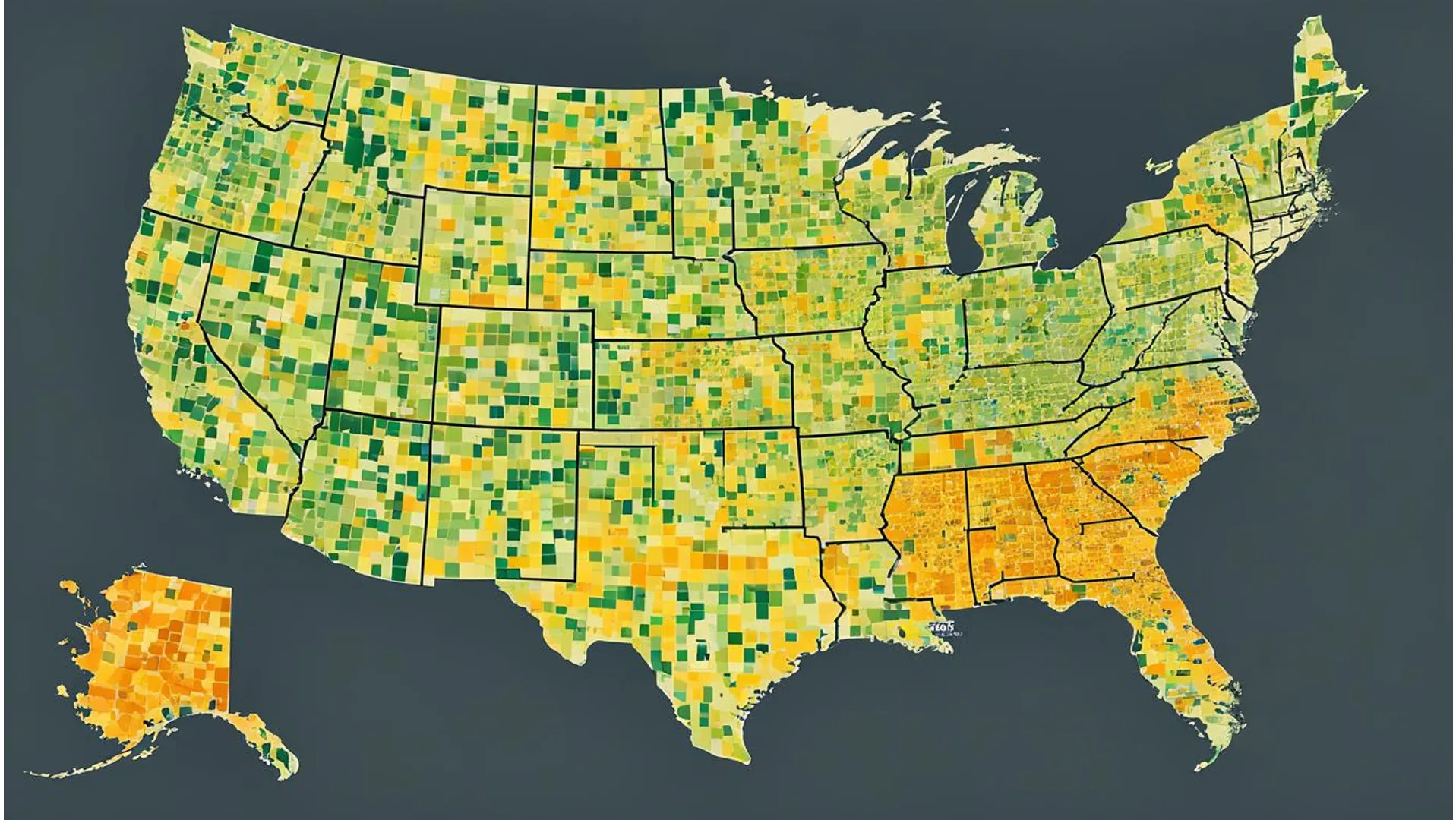Anesthesiologist Salary Trends: Analyzing Growth and Projections in Compensation

When considering a career as an anesthesiologist, one of the key factors that often comes to mind is the salary. Understanding the salary trends in this field can help you make an informed decision about your future in medicine. In this article, we will explore the growth and projections in anesthesiologist compensation, providing you with valuable insights into the financial aspects of this profession.
According to the recent Medscape’s 2022 Anesthesiologist Compensation Report, anesthesiologist salaries have been on the rise. In fact, the average salary for anesthesiologists in 2022 was $405,000, which represents a 7% increase from the previous year. This upward trend indicates a positive outlook for anesthesiologists in terms of earning potential.
In addition to their base salary, anesthesiologists reported receiving an average incentive bonus of $68,000. This bonus serves as an additional reward for their hard work and dedication to patient care. While anesthesiologists face unique challenges, such as the impact of the pandemic on healthcare systems, their compensation remains attractive compared to many other specialties.
Anesthesiologists also enjoy certain advantages when it comes to their work-life balance. Compared to other physicians, anesthesiologists have a relatively low administrative burden, allowing them to focus primarily on patient care. This work environment contributes to their overall job satisfaction, making anesthesiology a fulfilling career choice for many professionals.
Key Takeaways:
- Anesthesiologist salaries have been increasing, with an average salary of $405,000 in 2022.
- Anesthesiologists reported receiving an average incentive bonus of $68,000.
- Anesthesiologists have a relatively low administrative burden compared to other specialties.
- Despite the challenges posed by the pandemic, anesthesiologists remain among the happiest physician specialties.
- Considering the salary trends and job satisfaction in anesthesiology can help inform your career decisions in healthcare.
Factors Affecting Anesthesiologist Compensation

When it comes to anesthesiologist compensation, several factors come into play. Let's explore these factors in detail.
Anesthesiologist Salary Range
The average salary for anesthesiologists is $405,000 per year. However, the salary range can vary significantly. On the lower end, anesthesiologists can earn around $268,981, while those at the higher end can earn up to $562,224 annually.
Employment Type and Income
The type of employment can also impact anesthesiologist salaries. Anesthesiologists employed by hospitals or organizations tend to earn an average of 11% more compared to their self-employed counterparts.
Competition and Income
While competition may not significantly affect anesthesiologist income overall, about 60% of anesthesiologists report some impact. Among those affected, nonphysician practitioners are often cited as the main source of competition.
Administrative Responsibilities
Anesthesiologists spend an average of 10 hours per week on administrative responsibilities. This is lower than the average reported by physicians across all specialties, allowing them to focus more on patient care.

These factors contribute to the overall earning potential of an anesthesiologist. While salary ranges vary, anesthesiologists are well-compensated for their expertise and contributions to patient care.
Related: Tips for Negotiating Anesthesiologist Salary
Job Satisfaction and Challenges in Anesthesiology

Roughly 53% of anesthesiologists feel fairly compensated for their work, placing them in the middle among physician specialties surveyed. While 86% of anesthesiologists would choose their specialty again, only 69% would pursue a career in medicine again. The most rewarding aspects of the job include finding answers and diagnoses, making money at a job one likes, and helping others. The most challenging aspects reported include long hours, rules and regulations, and difficulties with reimbursement from Medicare and other insurers.
Being an anesthesiologist offers a mix of job satisfaction and unique challenges. Let's delve deeper into the factors influencing anesthesiologist compensation and explore the earning potential in this dynamic field.
The Anesthesiologist Compensation Landscape
Anesthesiologist compensation varies depending on experience, location, and employment setting. On average, anesthesiologists earn a salary of $405,000 annually, placing them among the highest-paid healthcare professionals. However, it's important to note that compensation can range between $268,981 and $562,224. Anesthesiologists employed by hospitals or organizations tend to earn an average of 11% more than those who are self-employed.
While anesthesiologists generally feel fairly compensated, challenges exist within the profession. One of the key challenges is the administrative burden, with anesthesiologists spending an average of 10 hours per week on administrative tasks. This is relatively lower than the average reported by physicians overall, indicating that anesthesiologists have more time to focus on clinical care. However, navigating the complexities of rules, regulations, and reimbursement from Medicare and other insurers can be arduous.

Despite these challenges, anesthesiologists find their work fulfilling. The ability to provide immediate relief from pain, ensure patient safety during surgical procedures, and contribute to positive outcomes are highly rewarding aspects of the job. Additionally, anesthesiology's financial stability and earning potential are attractive to many professionals.
Anesthesiologist Earning Potential and Career Satisfaction
When it comes to career satisfaction, anesthesiologists rate consistently higher compared to other physician specialties. Approximately 86% of anesthesiologists would choose their specialty again if given the chance. However, overall career satisfaction in medicine is lower, with only 69% of anesthesiologists expressing a desire to pursue a career in medicine again.
The reasons behind this dichotomy in career satisfaction can be attributed to various factors. Anesthesiologists find fulfillment in the intellectual challenge of solving medical puzzles, the opportunity to make a meaningful impact, and the financial rewards that come with a well-compensated specialty.
However, anesthesiology also comes with its share of challenges. Long hours and demanding schedules are common, as anesthesiologists are often required to be available outside regular working hours for emergencies and on-call duties. Additionally, the rigid rules, regulations, and reimbursement obstacles pose ongoing challenges that can impact job satisfaction.
Despite these challenges, the job outlook for anesthesiology remains positive. The demand for anesthesiologists is expected to grow, especially considering the aging population and the need for specialized care during surgeries and procedures. This high demand, coupled with the shortage of practitioners, is likely to contribute to continued growth in compensation and career opportunities for anesthesiologists.
Related: Regional Variations in Anesthesiologist Salary
Anesthesiologist Qualifications and Training

Becoming an anesthesiologist requires a bachelor's degree, followed by medical school and residency. After completing medical school, anesthesiologists must pass a licensure exam and undergo a four-year residency, with the last three years focusing on anesthesiology. They may also choose to pursue a fellowship to specialize in a specific area. Anesthesiologists have to accumulate between 12,000 and 16,000 hours of clinical training. Certification through the American Board of Anesthesiology is not required but can enhance professional opportunities and increase salary potential.
Education and Residency
To become an anesthesiologist, you need to start with a bachelor's degree in a science-related field. This provides a strong foundation in the basic sciences necessary for medical school. After completing your undergraduate education, you will need to attend medical school, which typically takes four years. During medical school, you will study various medical disciplines and gain practical experience through clinical rotations.
Upon graduating from medical school, you will need to complete a residency program in anesthesiology. The residency is a comprehensive training program that focuses on the knowledge and skills specific to anesthesiology. It typically lasts four years, with the last three years dedicated to anesthesiology training.
Fellowship and Specialization
After completing your residency, you have the option to pursue a fellowship to further specialize in a specific area of anesthesiology. Fellowships can last from one to two years and provide additional training and expertise in sub-specialties such as pediatric anesthesiology, cardiac anesthesia, or pain management. While a fellowship is not mandatory, it can enhance your professional opportunities and potentially lead to higher salary potential.
Clinical Training and Certification
Anesthesiologists are required to accumulate between 12,000 and 16,000 hours of clinical training during their residency program. This extensive hands-on experience ensures that anesthesiologists develop the necessary skills to provide safe and effective patient care.
Certification through the American Board of Anesthesiology is not mandatory, but it is recognized as a mark of expertise and can enhance your professional reputation. Board certification involves passing a rigorous examination that assesses your knowledge and skills in anesthesiology. Holding board certification can open up additional job opportunities and may contribute to an increased salary potential.
Related: Future Projections for Anesthesiologist Salary
The Future of Anesthesiologist Compensation

As the field of anesthesiology continues to evolve, so does the future of anesthesiologist compensation. Let's explore the latest trends and projections in the industry to gain valuable insights into what lies ahead for anesthesiologists.
Anesthesiologist Salary Trends
The Bureau of Labor Statistics predicts a 1.1% employment growth for anesthesiologists between 2021 and 2031, resulting in approximately 400 job openings.
This projected growth is primarily driven by the high demand for anesthesiologists and the shortage of practitioners in the field. As healthcare facilities strive to meet the increasing needs of patients, they rely on anesthesiologists to provide essential services during surgical procedures and pain management.
With this demand-supply dynamic, anesthesiologists can anticipate favorable compensation trends in the coming years.
Anesthesiologist Compensation Factors
Compared to many other physician specialties, anesthesiologists enjoy a higher earning potential due to their specialized skills and expertise. Their critical role in ensuring patient safety and managing pain positions them for competitive compensation packages.
In addition to high earning potential, anesthesiologists benefit from a lower administrative burden. While administrative tasks are unavoidable in any medical profession, anesthesiologists spend less time on administrative responsibilities compared to their peers.
Anesthesiologist Salary Guide
To provide a comprehensive understanding of anesthesiologist compensation, here is a breakdown of the average salaries according to various sources:

It's important to note that these figures may vary based on factors such as experience, location, employment setting, and additional certifications or specialties.
While these numbers provide a general guideline, it's crucial for anesthesiologists to consider their unique circumstances and consult reliable salary surveys to gauge their earning potential accurately.
In summary, the future of anesthesiologist compensation looks promising, with projected employment growth, high demand for their services, and opportunities for supplemental work. Anesthesiologists can anticipate competitive compensation packages that reflect their specialized skills and the critical role they play in patient care.
Related: Factors Influencing Salary Trends
Conclusion
Anesthesiologist salaries have been on an upward trajectory, with an average salary of $405,000 in 2022. This indicates a positive trend in Anesthesiologist Compensation and reflects the value placed on their specialized skills and expertise. Despite the inherent challenges of the profession, anesthesiologists generally feel fairly compensated for their work.
Job satisfaction and challenges can vary among individuals, but many anesthesiologists find fulfillment in providing vital medical care to patients and solving complex medical puzzles. The rewarding aspects of the job, coupled with competitive compensation, contribute to anesthesiologists' overall positive outlook for their earning potential.
The future of anesthesiologist compensation looks promising. Projected employment growth and the ongoing demand for anesthesiologists indicate a continued need for their services. Additionally, opportunities for supplemental work, such as locum tenens positions, provide flexibility and additional earning potential.
Related: Average Annual Growth Rate of Anesthesiologist Salary
Consider wanting a long-term position with your specialty. Anesthesiologists are in high demand as permanent hire physicians. Give us a call at 510.335.2265 to learn more or book a no-obligation consultation today https://strategycall.elitemedstaffing.com/
FAQ
How much is the average salary for an anesthesiologist?
The average salary for an anesthesiologist is $405,000.
What is the salary range for anesthesiologists?
The salary range for anesthesiologists is between $268,981 and $562,224.
Do anesthesiologists employed by hospitals earn more than self-employed anesthesiologists?
Yes, anesthesiologists employed by hospitals or organizations earn an average of 11% more than self-employed anesthesiologists.
How much time do anesthesiologists spend on administrative responsibilities?
Anesthesiologists spend an average of 10 hours per week on administrative responsibilities, which is lower than the average reported by physicians overall.
Do anesthesiologists feel fairly compensated for their work?
Roughly 53% of anesthesiologists feel fairly compensated for their work, placing them in the middle among physician specialties surveyed.
What are the most rewarding aspects of being an anesthesiologist?
The most rewarding aspects of being an anesthesiologist include finding answers and diagnoses, making money at a job one likes, and helping others.
What are the most challenging aspects of being an anesthesiologist?
The most challenging aspects of being an anesthesiologist include long hours, rules and regulations, and difficulties with reimbursement from Medicare and other insurers.
What qualifications and training are required to become an anesthesiologist?
To become an anesthesiologist, one must complete a bachelor's degree, followed by medical school and residency. After medical school, anesthesiologists must pass a licensure exam and undergo a four-year residency, with the last three years focusing on anesthesiology.
Is certification through the American Board of Anesthesiology required?
Certification through the American Board of Anesthesiology is not required but can enhance professional opportunities and increase salary potential.
What does the future hold for anesthesiologist compensation?
The Bureau of Labor Statistics projects a 1.1% employment growth for anesthesiologists between 2021 and 2031, resulting in approximately 400 job openings. The high demand for anesthesiologists and the shortage of practitioners are expected to contribute to growth in compensation.
Are there opportunities for supplemental work in the field of anesthesiology?
Yes, locum tenens opportunities provide flexibility for anesthesiologists looking to supplement their income and practice in new clinical environments.
Source Links
- https://comphealth.com/resources/anesthesiologist-salary-report
- https://www.erieri.com/salary/job/anesthesiologist/united-states
- https://money.usnews.com/careers/best-jobs/anesthesiologist


